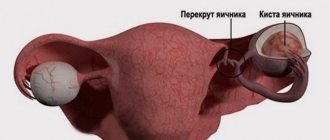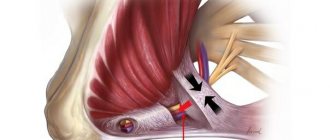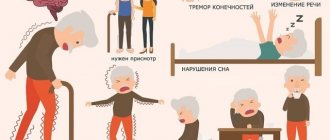When a loved one becomes alienated, becomes hostile, “explodes” over every little thing and in every possible way aggravates any conflicts, it is difficult to bear. If you are connected with such a person by unconditional (for example, maternal) love, regular bursts of aggression hurt doubly. After all, it hurts not only for yourself, but also for your loved one, who cannot be helped. Although in fact, help may be quite accessible if behind outbursts of anger and inappropriate behavior there is an accentuation (non-pathological character trait) - an epileptoid personality type. In order to get along with an epileptoid, whether he is a relative or a business partner, it is worth learning a few important details about this psychotype.
Epileptoid personality type: how to communicate
Communicating with an epileptoid is not an easy task. They are often rude and petty, trying to manipulate their interlocutor
It is important to understand that such people are not restrained by moral standards; they will flatter and slander, oppress and enslave in order to get what they want. Therefore, there is no point in trying to change them or somehow neutrally explain their actions
Any manifestations of kindness will be perceived by the epileptoid type as a weakness that must be used for their own purposes.
In a conflict situation, such a subject cannot be stopped with prayers and humility. The sight of a defenseless victim will only provoke him and increase his aggression. The only language understandable to the epileptoid character type is the language of power. Only a worthy rebuff can stop him. However, given the harsh nature of epileptoids, it is best to simply not have anything to do with them. This will save you a lot of nerves and time.
Epileptoid psychopathy
Epileptoid psychopathy is a mental disorder in which certain features of the epileptoid intensify and go beyond the “norm”.
A person with the disorder cannot control their emotions . He is aggressive towards representatives of society and most of the time he is in an irritated state.
The disorder comes from the word “epilepsy”, since the condition of a person with the disorder resembles the conditions that develop in patients with epilepsy.
Professions
Epileptoids are more successful in professions that seem to be more “intended” for them... Well, of course, the military, more precisely, the contract officer corps, and not conscript soldiers. Police and law enforcement agencies. Teachers, doctors. To a lesser extent, but still suitable for epileptoids, the work of an accountant. Each of these professions is characterized by edifying, demanding, authoritarian, etc.
Epileptoids are persistent in mastering professional skills, but once they have mastered something, they have difficulty relearning it. They are retrogrades in terms of innovations in interoffice equipment. Having learned to type on a typewriter, the epileptoid resists switching to a computer. Having mastered some computer programs, he slowly moves on to other, more advanced programs. That is, it holds programs well,
but it can be said
that they also hold him back.
Recommendations for this accentuation
Epileptoid accentuation does not mean that a person should be treated .
Indeed, in the case of accentuation, individual traits of a personality type appear very clearly and intensely, but at the same time they are within the limits of the norm.
This means that drug correction of aggression is unacceptable.
Available methods of psychological and pedagogical correction:
- It is necessary to find a field of activity in which a person can satisfy his need for order , and his pedantry will be a huge advantage. Then you should gradually separate work and other areas of life in order to allow the epileptoid to sufficiently express himself in the profession, but at the same time control tediousness and the desire for ideality in interpersonal communication.
- You cannot argue with a person, try to convince him or reason with him at the moment of an emotional peak (outbursts of rage).
Explanatory work and therapeutic influence will be beneficial only during the “quiet period”. - The epileptoid must form a system of priorities for himself and think through the rules of behavior within the framework of this system. In the future, love for order and compliance with regulations will allow you to maintain the correct line of behavior in your priority area, be it family, friends or work.
Attitude to money
The epileptoid type always strives for power over people, and money is its equivalent in modern society. Therefore, epileptoids have a very reverent attitude towards the despicable metal. For them, the process of accumulating and multiplying material wealth is natural and simple. This type of personality shows a willingness to work hard to achieve their goals. In a family, the epileptoid personality strives first of all to gain control over finances, often taking away wages from his significant other.
If an epileptoid has managed to accumulate good capital, then he will definitely turn into a miser. Like a dragon, he will sit on his riches, destroying anyone who dares to encroach on them. This often leads to loneliness, which does not frighten the epileptoid type at all. Psychology and psychoanalysis of the character of such people have revealed in them a remarkable sense of purpose, the ability to move forward no matter what. For the sake of future wealth, such a person is able to withstand any hardships and adversities, and show real miracles of endurance and perseverance.
Signs of epileptoidism in women
In representatives of the fair sex, epileptoidism can manifest itself already in early childhood. Attacks of disobedience and complete uncontrollability in ordinary-looking girls arise “out of the blue”; they are difficult to predict or prevent. The main signs of the epileptoid personality type in girls:
- tendency to steal;
- deceit, cunning, deceit, slandering others for the sake of protecting oneself;
- running away from home, tendency to wander;
- sexual preoccupation (optional but common symptom).
The onset of puberty and the continuing desire for vagrancy often lead to the fact that women of the epileptoid personality type begin to engage in prostitution. Among prostitutes there are indeed many epileptic psychopaths.
“Domestic” women of the epileptoid type are distinguished by their authority, the desire to establish their own rules and force others to comply with them. Resistance is met with sharp aggression, a raised tone of voice, threatening gestures, and, less often, assault.
Remember the old woman in Pushkin's fairy tale about the fisherman and the fish? “She beats them, drags them by the chuprun” - this is how an epileptoid woman who has gained power over others behaves.
Calling technical support [humorous essay]
Technical support specialists must not only be highly qualified professionals in their field, but they must also have a remarkable amount of patience and the ability to psychologically maneuver. After all, every user is very different and you need to try to find your own approach to each one. This is what my small experimental sketch of a humorous nature will be about. And for the sake of color, as a big fan of allegorical images, I will replace the program theme with my favorite analogy - the car theme. History makes no claims to truthfulness, reality, or authenticity. Any similarities are random. And the moral... it is that you need to be prepared for any turn of events.
Is epileptoidism good or bad?
Despite the fact that many psychologists cite several “attractive” traits of excitable personalities (neatness, pedantry, love for children), epileptoidism can hardly be called a good accentuation. In fact, what good is it that a person is at the mercy of impulses, drives and instincts, does not hear the voice of reason and is not able to adequately respond to current events?
Fortunately, any psychotypes in their “pure” form are rare; most personalities are mixed accentuations with their weaknesses and strengths. If you have to deal with obvious signs of epileptoidism in a loved one, try to understand that it is not easy for him either.
Constantly being angry or anxious, the inability to enjoy life is a heavy burden for the human psyche.
Try to become a true friend to him, who will not be offended by outbursts or try to re-educate him, but will be able to cool his ardor with his own equanimity. In severe cases, especially when a person himself begins to understand the misery of his condition, it is advisable to persuade him to visit a psychotherapist.
Education
Studying for an epileptoid is part of a career.
As a rule, he studies quite smoothly, without zigzags. Moves from class to class, from course to course, does not lag behind or get ahead, does not skip over the course. According to your abilities, of course. Grades: three-fours, fours-fives, fives. But a mixture of threes, fours, fives and... twos is extremely rare; This is probably not an epileptoid anymore. This is how paranoid, schizoid and hysterical people most likely learn. Although they may be more equal. Well, as we see, this is also a plus for the epileptoid. The epileptoid appreciates the investments made in him. You have to pay for your studies; whether the state, parents or he himself pays - he has to work it out.
Justice
The epileptoid may be somewhat smaller than the psychasthenoid, but still loves justice. AND
loves
to bring justice.
After all, justice is order. But the epileptoid is very straightforward in his search for justice, does not feel nuances (the psychasthenoid does). It is difficult for him to resolve contradictions, it is difficult for him to make compromises. Therefore, contradictions often develop into violent conflicts: the epileptoid tries to restrain himself, but this costs him a lot of work, especially if the issues are objectively sensitive. This can be dangerous.
■ From this point of view, sometimes a criminal should be shot on the spot if there were two witnesses. And he will think about the fact that witnesses can be fake only when it is suggested to him during the controversy. For murder, in his opinion, one should be executed. And the fact that a murder could be committed in response to another deliberate and unjustified murder does not immediately occur to him either.
Many epileptoids followed the Bolsheviks to implement the dictatorship of the proletariat, without thinking that other people should also have the right to vote. Epileptoids should not forget about this in their zeal for justice and conduct a deep moral and psychological analysis of their position.
Logic of behavior of a psychotype
Each psychotype behaves in a certain way. It is very difficult for him to behave differently; Great efforts are required to change behavior contrary to the logic of the psychotype. With regard to the epileptoid, we can say that the logic of his behavior
not even iron, but
steel.
Order in things means order in relationships. Since he has order in his relationships, it means that he must force others to follow it. If they don’t comply, they must be punished. The reader himself has probably already felt this rather strong connection. And we will not torment him with an analysis of each link of this iron chain; it is enough to state that it exists and that on its basis it is possible to predict the behavior of the epileptoid and correct it.
Epileptoid - who is it?
An epileptoid is a characteristic set of human traits, or personality pattern.
A person of this type is healthy, it’s just that his character is dominated by suspiciousness, pedantry and a tendency to aggressive reactions.
At the same time, the basic feature of all eliptoids is a love of order and expediency .
Eliptoids relate to epilepsy only due to similar mental disorders, but eliptoids have no signs of the disease.
Features of the manifestation of pathology
An epileptoid psychopath reacts to stressful situations with outbursts of negative emotions that are incommensurate with the scale of the problem. If suddenly they are faced with condemnation or an attempt to prevent an emotional outburst, this provokes them to even more aggressive and threatening behavior. Often they quickly move away and regret what they did, but in a similar situation they again cannot control themselves and do the same.
Such people are constantly dissatisfied with something, they look for reasons to enter into conflict with their interlocutor. In an argument, psychopaths are very emotional, scream and stubbornly try to convince their interlocutor that they are right. Trying to defend justice, they often come to defend themselves, their rights and interests. This is why explosive psychopaths find it difficult to get along and adapt in groups.
Patients with impulsive personality disorder are prone to manifestations of vindictiveness, selfishness, domineering, excessive accuracy and pedantry. For all their aggression, they are often characterized by flattery, sweetness, and hypocrisy. Psychopaths either love or hate the people around them. But even those they love often suffer from manifestations of impulsive states. Many psychopaths of the epileptic type are susceptible to alcoholism, drug addiction and other addictions. Among them there are often murderers and sexual perverts.
In men and women
Female psychopaths are domineering, capricious and vindictive. They try to keep everything under their control. They often show hypocrisy and hypocrisy for their selfish personal goals. At the same time, pedantry and accuracy make them economical in everyday life.
Psychopathic men show great aggression and often try to achieve what they need by force and humiliation of their interlocutor. They tend to manipulate people and have problems in love relationships.
Treatment
Psychological treatments for personality disorders typically include cognitive behavioral therapy and psychoanalysis. Moreover, it can be carried out individually and in groups. In any case, the doctor must build a trusting relationship with the patient, and then understand the causes of impulsive disorder with subsequent help in correcting behavior.
Treatment is usually carried out with several groups of medications:
- Normotimics (mood stabilization),
- Neuroleptics (suppression of psychomotor agitation),
- Sedatives (reducing emotional stress),
- Antidepressants (to treat side effects such as distress).
Signs
The main manifestation of the character of the epileptoid type is susceptibility to dysphoria (sustained depression of mood). Dysphoria entails other disorders - affective manifestations, including outbursts of anger, aggression, tension, intense expression of instinctive reactions, even abnormal drives. Other signs:
- Viscosity, inactivity of mental processes, which is manifested by torpidity (lethargy, inertia) of mental activity, resentment, obsession, importunity. Patients are characterized by a long period of recovery after suffering stress and mental shock. Inertia reflects the inability to quickly switch from one activity to another. Inertia manifests itself in relation to mental processes, motor activity, and emotional reactions.
- Blurry, uncertainty in the sphere of motives, interests and personal values.
- Emotional tension, excitement, which accumulates, finds a way out in aggressive attacks. Epileptoids are characterized by the traits of a misanthrope - hatred of people, unsociability, alienation.
Dysphoria is often observed over several hours or days and is characterized by an angry and melancholy tone of mood. During this period, irritation increases, the epileptoid looks for an object on which he can freely unleash evil. In the absence of a suitable object in conditions of relative peace, a representative of this psychotype calms down for a short time.
Outbursts of affect are programmed and predictable. Psychologists compare the state of an epileptoid to a steam boiler that gradually boils before exploding. The reason for the explosion is often an insignificant detail that is associated with the “last straw”. Affective outbursts are characterized by intensity and considerable duration.
A person with an epileptoid character exhibits explosiveness - a constant readiness for a powerful, inappropriately strong explosive affect, which is rarely observed in patients with organic brain damage. With psychopathy of organic origin, outbursts of affect usually do not last long, quickly regress, and fade away. In representatives of the labile psychotype, affects are characterized by lability - variability.
In hyperthymics, affects are more reminiscent of episodes of irascibility, when the individual quickly becomes emotionally excited and just as quickly calms down, cools down if the reason is exhausted or attention is switched to another situation.
Epileptoids express aggression violently and for a long time. If signs of epileptoid personality are observed in childhood, the prognosis is relatively unfavorable. In such cases, the pathology in adults is severe with pronounced pathopsychological symptoms.
For epileptoid children, episodes of uncontrollable crying that cannot be stopped for a long time are typical - attempts to control, consolation or distracting actions do not help. Such children are often gloomy, cheerless with an embittered expression on their faces. They tend to be capricious, deliberately harass, and pester others with their whims and quirks.
They often show sadistic tendencies from an early age - they abuse animals, show violence (beating, insulting, humiliating) towards the weak and younger. In a company of peers, they aspire to a leading position, and they associate the status of a leader with undivided power and unquestioning submission to others. They establish their own order in the company, rules that are convenient for themselves, taking into account exclusively their own interests and benefits.
Such children are overly careful with their things - clothes, toys, accessories, demonstrating childish neatness and thriftiness. Attempts to claim their property are met with pronounced emotional manifestations of anger and aggression. In the elementary grades of school, they carefully and scrupulously fill out notebooks, often earning the teacher’s praise for their legible, precise handwriting.
Often, excessive care with school supplies and secondary skills overshadows the study itself, which negatively affects overall performance. In most cases, epileptoid character traits clearly appear during adolescence (about 12-19 years). The main symptom is dysphoria, which often occurs spontaneously without an obvious cause.
In the structure of dysphoria, signs are observed: anger, irritability, melancholy, despondency, apathy. During episodes of decreased mood, the epileptoid often indulges in idleness, aimlessly wasting time with a gloomy, gloomy expression on his face. A common consequence of dysphoria is outbursts of passion. Typical manifestations for a male epileptoid are:
- Power, despotism.
- Cruelty, lack of compassion, empathy.
- Stubbornness, intransigence.
- Egocentrism, excessive selfishness.
The causes of an outburst of passion are always associated with infringement of interests, even to a small extent. They adhere to an authoritarian style in communication. In relationships with a partner, they demonstrate jealousy even in the absence of grounds. In an epileptoid woman, manifestations of aggression, cruelty, and misanthropy are usually less pronounced, which is associated with the influence of the social environment that supports socially approved behavioral stereotypes. External signs:
- Squat figure.
- Strong build with a massive torso.
- Short but strong limbs.
- Shortened neck.
- Enlarged lower jaw.
- Round head shape.
Epileptoid is one of the most unfavorable types in the context of social adaptation. More often this psychotype is detected in males. The most difficult period, full of conflicts and excesses, is adolescence. If the signs of the epileptoid psychotype appear slightly, we are talking about character accentuation.
With pronounced pathological symptoms, a diagnosis of psychopathy is made (a personality disorder manifested by a violation of the harmonious balance, proportions between character qualities). Positive personality traits with epileptoid accentuation: accuracy, attention to detail, perseverance. Hidden accentuation manifests itself in conflict situations involving infringement of interests, or in a state of alcohol intoxication.
In the case of a mental personality disorder, representatives of the epileptoid type often demonstrate cynicism and a complete lack of empathy. During a period of affective outburst, such people easily inflict severe beatings, despite the weakness and infirmity of the enemy. During outbursts of rage, signs of vegetative reactions are clearly observed - redness of the skin of the face, profuse sweating.
If you are an epileptoid
The desire of the epileptoid to dot the i’s, detailed instructions and the requirement to repeat instructions, the demand for a report on what has been done, the desire to put the partner in an evaluation position, negative assessments, accusations using unpleasant epithets, edifyingness, authoritarianism, raised tone, harshness in the voice, ridicule with the use of borrowed cliches - all these conflict-generating features typical of an epileptoid make him a difficult person for many people, especially if this turns into epileptoid accentuation. And therefore, if you are an epileptoid, and next to you is a sensitive, hypothymic, schizoid, hysteroid - be careful. The first two can be broken, they will cry, and will not work well with constant nagging. The schizoid will lose his creative gift, and the hysteroid will react with hysterics.
■ The epileptoid should track in himself and record tendencies that are difficult for people, even if they seem appropriate to him, and slow them down. Of course, you won’t completely escape yourself, but you can significantly reduce the manifestation of these traits.
Every person is capable, if he wants, of “pushing” himself where he is difficult for others. Likewise, an epileptoid can realize his negative psychological qualities in the eyes of others, and above all in terms of psychotechnics of communication.
In order for inhibition to occur naturally on an unconscious level, thorough training is needed. Let us remind you: successes are directly proportional to the efforts spent on training.
We have now discussed the situation “if you are an epileptoid.”
Law-abiding
The epileptoid is law-abiding. He honors the letter of the law more than the spirit of the law. He is obedient himself and forces other people to be law-abiding. He especially likes the latter, because he is law-abiding not out of cowardice, like a sensitive, but out of respect for the law.
But close to the law lie generally accepted moral norms. He adheres to them and stigmatizes those who deviate from them. For comparison: the psychasthenoid also respects morality, but can condemn unjust laws. The epileptoid is inclined to respect unjust laws,
if these are laws.
Therefore, we can say that the epileptoid is more law-abiding than “morally obedient
”
And the psychasthenoid is more obedient to the norms of morality than to the norms of the law. In addition, one more important thing: the psychasthenoid is more picky with himself than with others, and the epileptoid will forgive himself some things in case of deviating from the law and morality, but will not forgive others the same.
Symptoms
There are character traits that define epileptoids, and in men and women with epileptoid psychopathy, these same traits seem to be excessively expressed, so that their behavior seems abnormal, out of the generally accepted framework.
Affective outbursts are one of the most characteristic signs. Attacks of anger appear, as it seems to others, out of the blue, but, in fact, epileptoids “save up” their emotions for a very long time and “explode” at a certain moment. Since most of the time such a person is in a state of dysphoria, it is almost impossible to guess when and what will trigger the next outbreak. In a fit of anger, people have poor control over their emotions, can behave aggressively and are not always able to stop in time. Dysphoria – decreased mood, melancholy, anger, increased sensitivity to minor irritations. Most of the time the epileptoid is in this state. He seems to be looking for (and finding) reasons to be offended, angry or upset. Viscosity of thinking and behavior - it is very difficult for an epileptoid to quickly change his behavior or way of thinking. They love order, tend to “put everything in order” and cannot quickly switch to another object or action. Cyclicality – changes in mood, periods of dysphoria and aggression constantly replace each other. With pathology, even a certain “regime” is possible, for example, in the morning the mood is normal, by lunchtime it worsens, and in the evening an explosion occurs. Touchiness, suspiciousness - such people take everything personally and notice every little thing if it has anything to do with them
Another side of such self-centeredness is the almost complete lack of empathy and lack of desire to pay attention to the feelings of others. Pedantry – a penchant for order and the desire to put everything in its place can turn into pedantry.
The disorder is currently classified in the Diagnostic and Statistical Manual of Mental Disorders (DSM-5) as “disruptive, impulsive self-control disorder, and conduct disorder.” The disorder itself is characterized quite complexly and often exhibits comorbidity with other mood disorders, in particular bipolar disorder.
Patients diagnosed with explosive psychopathy show attacks that are brief (lasting less than an hour), characterized by various bodily symptoms - sweating, stuttering, chest tightness, twitching, palpitations. Aggressive actions are often accompanied by a feeling of relief, and in some cases pleasure, and ultimately by late repentance.
Many epileptoids cannot live in disorder, and order is considered to be the level that he has determined for himself. They always have a made bed, washed dishes, a basin and a bucket in the place chosen for this. It is quite difficult to tell something complex to an epileptoid; due to his viscous thinking, he will not be able to understand the details, which will lead him to another attack of rabies.
The state of dysphoria (sad, sometimes angry behavior combined with a difficult perception of fast events) is present in the life of a psychopath for quite a long time, sometimes up to a week; it happens that it is possible to get rid of such a mood by taking out anger on an object that comes to hand.
Affective aggressive outbursts are initially invisible, but the cause for an explosion can be an event that is invisible to an ordinary person. Sometimes aggression is provoked by drinking alcohol, which catalyzes all hidden resentments and anger. Epileptoids tend to enjoy life and satisfy their needs, so among this contingent there are many alcoholics, drug addicts, and gamblers who do not consider their vices something terrible and are not going to stop them.
Envious epileptoids hide this character trait. It is very difficult for their family members to exist next to them; epileptoids hold the palm of dominance in the relationship. If something gets out of their control, then another attack of rage with the use of physical force puts everything in its place. The characteristic features of an explosion of uncontrolled behavior are those that are noted when a person experiences an epileptic seizure.
In the sphere of work and business relationships, psychopaths do not stay in one place for long. This is explained by the fact that if it is difficult to get rid of such an inadequate epileptoid in the family, then in the field of work the employer or partner simply breaks off relations with him, not wanting to deal with an antisocial personality.
Epileptoid type of character accentuation according to A.E. Lichko
In 1910, psychiatrist Georg Roemer (Lichko A.E., 2010) described a group of psychopaths characterized by excitability, anger, a tendency to prolonged alcoholic episodes and sexual liberation. A more detailed description of this type is associated with the name of F. Minkowski (1923), whose name “epileptoid” was given for its striking similarities with the personality changes that patients with epilepsy undergo.
And this similarity, according to A.E. Personally, it’s no coincidence. When an individual develops an epileptoid type of psychopathy in prenatal, natal and early development, one can observe the presence of negative factors that leave a mark on the neurological “microsymptoms”. It is possible that many features and nuances of the character of the epileptoid are due to compensatory mechanisms in cases of mild organic damage to the brain. But this picture is not observed in all cases, and is probably itself caused by internal factors (Lichko A.E., 2010).
The main feature of the epileptoid personality is a tendency to dysphoria (gloomy irritability, hostility towards others), emotional instability/explosiveness, rigidity of thinking, inertia, and stiffness.
Dysphoria, which lasts for hours or days, is characterized by an angry-sad mood, increasing irritation and a search for an object on which to vent anger. Dysphoria is easier if a person is alone.
Emotional outbursts of an epileptoid are not as sudden as it may seem to others. Most often, the emotional state of an epileptoid can be compared to an overflowing tank, where the last emotional event played the role of the last straw. The discharge is distinguished not only by its high intensity, but also by its duration - it can take quite a long time before the individual calms down.
Signs of epileptoid psychopathy can be noticed in childhood. From the first years of life, such children can cry for a long time, without calming down under any circumstances. Manifestations of dysphoria can be in the nature of whims, deliberate attempts to cause discomfort to others, and anger. Sadistic tendencies may also appear - bullying of animals or younger/weak children. In the company of other children, they pretend to be the owner-dictator, indicating how and according to what rules something should be done and how to interact with others. As a result, they treat their things with care; attempts by others to appropriate the property of such a child leads to malice and anger.
In the lower grades, such children show a pedantic attitude towards keeping notebooks and all their school things, however, soon such pedantry turns into an end in itself, overshadowing their studies.
In most cases, the picture of epileptoid psychopathy develops only by the age of 12-19 years. Dysphoria, which is spontaneous in nature and also acquires the character of apathy and idleness, comes to the fore.
Emotional outbursts may be the result of a teenager's dysphoric discharge. But they can also be caused by conflicts provoked by the personality traits of such adolescents - authority, intransigence, cruelty. The reason for the reaction may be negligible, but it is necessarily associated with infringement of the interests of the teenager. The affect is characterized by uncontrollable rage and a tendency to hit the stomach or genitals. In this case, manifestations of tension in the autonomic nervous system are detected - redness of the face, increased heart rate, perspiration, etc.
Due to increased attention to one's health, the greater strength of sexual desire is restrained, and the teenager gives preference to relatively stable relationships. Most often, all relationships with teenagers of this type are colored by tones of jealousy. They never forgive betrayals, be they real or fictitious. Innocent flirting is interpreted as betrayal. During periods of dysphoria, attacks of jealousy worsen, which leads to unfounded accusations of their partners. At the same time, an epileptoid teenager is prone to betrayal.
Epileptoid adolescents are prone to sexual intemperance, sadistic or even masochistic aspirations. If normative sexual activity is not feasible, the teenager resorts to perversion.
One of the infrequent but striking forms of sexual desire disorder observed in such adolescents is a pathological passion for autoasphyxophilia (games with breathing control).
Tension and unusual desires lead to alcoholism. Teenagers drink strong alcoholic drinks until they lose dose control (“until they pass out”). The tendency to use drugs is low, because few substances can cause the conditions they require, similar to alcohol intoxication.
Propensity to vagrancy, arson, or other forms of disordered desire are quite rare. Running away from home is most often caused by the need to move away from parental control.
Suicidal behavior is difficult to analyze. In epileptoid adolescents, true suicide attempts are quite rare, while in adults they are possible only in cases of severe dysphoria. Most often, demonstrative suicide attempts are caused by a feeling of revenge, a desire to cause trouble for the offender, or jealousy. At the same time, sophisticated vindictiveness manifests itself not only in situations of jealousy, but also when their interests are infringed. Epileptoids love to enjoy watching the reaction to their revenge.
Separation from parents is quite difficult. In extreme manifestations, it can be expressed by a complete severance of relationships and communication with an expression of bitterness and vindictiveness. In case of conflicts with my parents, I can hold on to my grandparents, if they indulge them in their whims. With the boss, the picture is different; the epileptoid can fawn and curry favor with him, seeking favor.
The formation of reference groups is associated with the need for power and control. Most often, such teenagers become leaders of groups of younger, weak or weak-willed teenagers who are unable to go against their opinions. Their power rests on fear of them.
The hobbies of such teenagers are bright. Most epileptoid teenagers prefer gambling because... a craving for easy enrichment awakens in them. In the game, they can lose control of themselves, playing “binge-drinking”. The form of collecting something attracts them only from the side of material values. Sport attracts with the opportunity to develop and show physical strength. Team games are bad for them.
G.E. Sukhareva (Clinical lectures on childhood psychiatry, 1959) describes the appearance of epileptoid adolescents as follows - a squat, strong figure, a massive torso with short but strong limbs, a round head slightly pressed into the shoulders, a large lower jaw, large genitals in boys, slow movements , heavy motor skills.
In preparing this article, materials from Lichko A.E. were used. Psychopathy and character accentuations in adolescents. - St. Petersburg: Rech, 2010. - 256 p.
Commerce
What kind of epileptoids are businessmen? First of all, they are mostly honest, that is, you can rely on them, but you must keep in mind that under certain difficult circumstances they may stumble..
Of course, there are probably no absolutely honest people at all; even psychasthenoids can lie and then suffer from conscience. But still, with certain precautions that guarantee safety, it is preferable to deal with epileptoids* than with other psychotypes (the psychasthenoid as a businessman is not very active, hyperthym is fussy, but by and large a loser, loves risk and is often unscrupulous in business...) . The epileptoid does not like commercial risks, he risks ten percent of his capital, no more, does not enter into dubious transactions, makes inquiries, demands receipts.
■ One epileptoid lent me money and demanded a receipt. I asked him if he didn't trust me. I trust, of course, was the answer, but what if you die in a car accident, your relatives will give it up.
We were not close friends, I forgave him for his tactlessness, borrowed money and gave a receipt. When I repaid the debt to him, he himself gave me the receipt without any reminders.
The epileptoid is inclined to test this or that business first at a small turnover of capital, experiment and only then increase the turnover.
Behavioral traits and characteristics
As mentioned above, excitable individuals or epileptoids are prone to various types of aggression or, conversely, depression. Usually in such people the first appears first, then smoothly flows into the second. The epileptoid is very withdrawn and at first glance looks like a very offended person. His behavior pushes others away from communicating with him, which he does not even suspect. He may get angry over trifles and, on the contrary, not react to serious troubles.
The behavior of an epileptoid in a given situation is quite difficult to understand, because he is like a boiling kettle, with which you never know exactly when it will whistle. The epileptoid personality type is characterized by constant dissatisfaction with life and others; he stores his aggression inside and rarely explodes. But if it does explode, it can then go away for weeks. Agree, there is some similarity with the above-mentioned kettle - first it boils for a long time, then cools slowly. This is the main feature of the epileptoid.
Another characteristic feature of an excitable personality is its conservatism. Usually such people do not want to change anything in their lives. But, unlike the same sanguine people, choleric people and phlegmatic people, they themselves do not want to adapt to social rules. On the contrary, they will sluggishly demand the same conservatism from others and get angry when their requests are rejected. On the one hand, a certain conservatism is inherent in all of us, but only in the epileptoid is it clearly expressed and is the reason for all his actions.
There are two more concepts in psychiatry that, at first glance, are very similar to the case described. Labile and psychoasthenoid personality types also have conservatism and pedantry in their character, but unlike the epileptoid, they are driven by an uncontrollable craving for complete perfection of the world around them, down to the smallest detail. For example, a psychoasthenoid can wipe dust particles from the table every half hour, which even to an epileptoid type will seem strange and unnecessary, because he is characterized by more practicality in behavior than excessive concern for the things around him.
Statistics
I have already said that I do not know of studies that would give the psycho-typical structure of humanity in percentage. Based on my intuitive impressions, I can say that 3-5% of people are paranoid, and among them about 0.5% are women. Epileptoids among men are approximately 50%. And among all epileptoids, 75% are men and 25% are women. But about 20% of women have epilepsy. These are my observations. Of course, you also need to keep in mind that many people have a mixed psychotype structure. How many are there? Don't know. Let's explore together. Although it is unlikely that anyone will need accurate information about this. Well, of course, if we assume that the planning and structuring of teams will someday be put on a strict scientific basis, perhaps this will be necessary. For now, we are only interested in entertaining psychology, let’s get by.
Married life
Living together with an epileptoid does not bode well, regardless of gender. Most often, they look for a weak, inert partner. Then this partner gradually begins to turn into property. Jealousy is an ineradicable vice that permeates the entire personal life of this type. Any slightest reason for jealousy can infuriate an epileptoid, and this despite the fact that he himself can cheat without any twinge of conscience.
People are often attracted to this personality type by their unbridled, hypertrophied sexuality. It carries a tangible imprint of violence and allows you to bind your partner to you even more. Occasionally it happens that two epileptoids enter into a marriage. In this case, constant quarrels and attempts to find out who is boss in the house are inevitable. Such marriages rarely last.
Traits in men and women
The epileptoid character is a traditionally masculine character (strong, uncompromising, hardy, demanding). According to statistics, in 70% of cases this type occurs in men.
In order for a woman to have and develop the makings of an epileptoid, she needs a specific social environment or hormonal changes.
But men and women exhibit the same epileptoid features. There are no differences in the basic set of traits. However, women more often show offence, while among men the dominant emotion is aggression.
Common features:
- tendency to rituals and repetitive actions (changes in rituals are unacceptable);
- explosiveness (when an epileptoid accumulates negativity, he behaves with restraint for a long time, but then an intense outburst of anger occurs);
- perseverance (a person persistently moves towards the goal along the chosen path, without considering workarounds, even if they are more effective and simpler).
- intolerance of dissent (the epileptoid is able to recognize only his own point of view as truth).
In a relationship, an epileptoid, regardless of gender, looks for a weak partner who can be suppressed. Then they begin to adjust the partner to their own rules and turn them into property .
The central theme of the relationship becomes jealousy, which arises for no reason and leads to a violent negative reaction on the part of the epileptoid.
Epileptoids also have a difficult relationship with money. After all, a person of this type strives for power and control over people in order to subordinate them to his orders.
And money is a symbol of power. Therefore, epileptoids are ready for serious efforts and hard work in order to make capital.
Commander - subordinate
Epileptoids are good bosses
and
obey well.
The early works of the famous and very talented psychologist Professor F.D. Gorbov say that the rower (the commander in a multi-oared boat) was always a good ordinary rower.
The epileptoid is often so limited by blinders that he himself may die rather than go beyond the circle allotted to him.
■ Zhukov could have moved the entire army against Stalin, but he was a marshal, not a politician, and Stalin put him in the background - to command the district, then the same thing happened with Zhukov and Khrushchev: he “put Nikita into orbit like a launch vehicle, and fell off "(an old joke), but he could have brought down Khrushchev.
Because of their devotion, epileptoids often find themselves in difficult moral situations. dependent on other people's views with a rod inserted into him,
the epileptoid becomes, having fallen into an unjust system,
an instrument of this system.
This was the case with German epileptoids, and this was the case with Soviet epileptoids.
It was their hands
that created Hitlerism and Stalinism.
The epileptoid is not only efficient in carrying out the line of his paranoid leader, the prophet, his party and its traditions. He imposes his views on others, forces them to carry out the programs of his party, its rituals, to honor its symbols, to profess principles that he considers moral, although other people may consider them, on the contrary, immoral.
He is a zealous servant and fighter. He cuts from the shoulder - and heads fly. He becomes a knight of the revolution. With weapons in hand and observing military discipline, he forcibly imposes an ideology, a political system, and a state structure.
This is not typical for schizoids, hyperthymics, and psychasthenoids. Hysteroids may align themselves with one or the other; the rods inserted into them are so flexible or so easily removed and replaced by others that they cannot be compared in this sense with epileptoids. Although at some particular moment they can be quite passionate speakers and beautifully brave warriors.
Personality disorder
Eliptoid personality disorder is characterized by long periods of melancholy and irritability, aggression, and sometimes sadistic tendencies.
A person “takes out his anger” on others, easily enters into conflicts and provokes them himself without objective reasons.
The condition implies social maladaptation and the inability to enter into meaningful and healthy relationships with people.
Signs
- affective outbursts (a person, like a sponge, absorbs negativity, and then splashes it out through aggression towards others);
- chronic depression of mood (a person is constantly in an angry and melancholy state, constantly finds reasons for resentment and frustration);
- static thoughts and emotions (it is difficult to change from one state to another because of the love of order and constancy);
- mood swings or cycling ;
Sudden changes in mood can be spontaneous, or can be tied to a specific “regime,” but cycle changes occur regularly and often. - suspiciousness (people with the disorder suspect others of wanting to offend and hurt, suffer from touchiness and self-centeredness);
- l love of order (the desire to assign everything its place and the reluctance to disrupt the organized order reaches the extreme form of pedantry).
Causes
Most often, the disorder develops in early (childhood) age .
Adults are less likely to develop epileptoid disorder. Common reasons include:
- damage to the nervous system (due to injury, poisoning, infectious diseases);
- genetic factor (pathology is more likely to develop in a person whose family has a history of mental disorders);
- unfavorable household/social environment (difficult living conditions leave their mark on children and often lead to deviations in mental development);
- addictions (the disorder may occur due to the use of alcohol or drugs).











